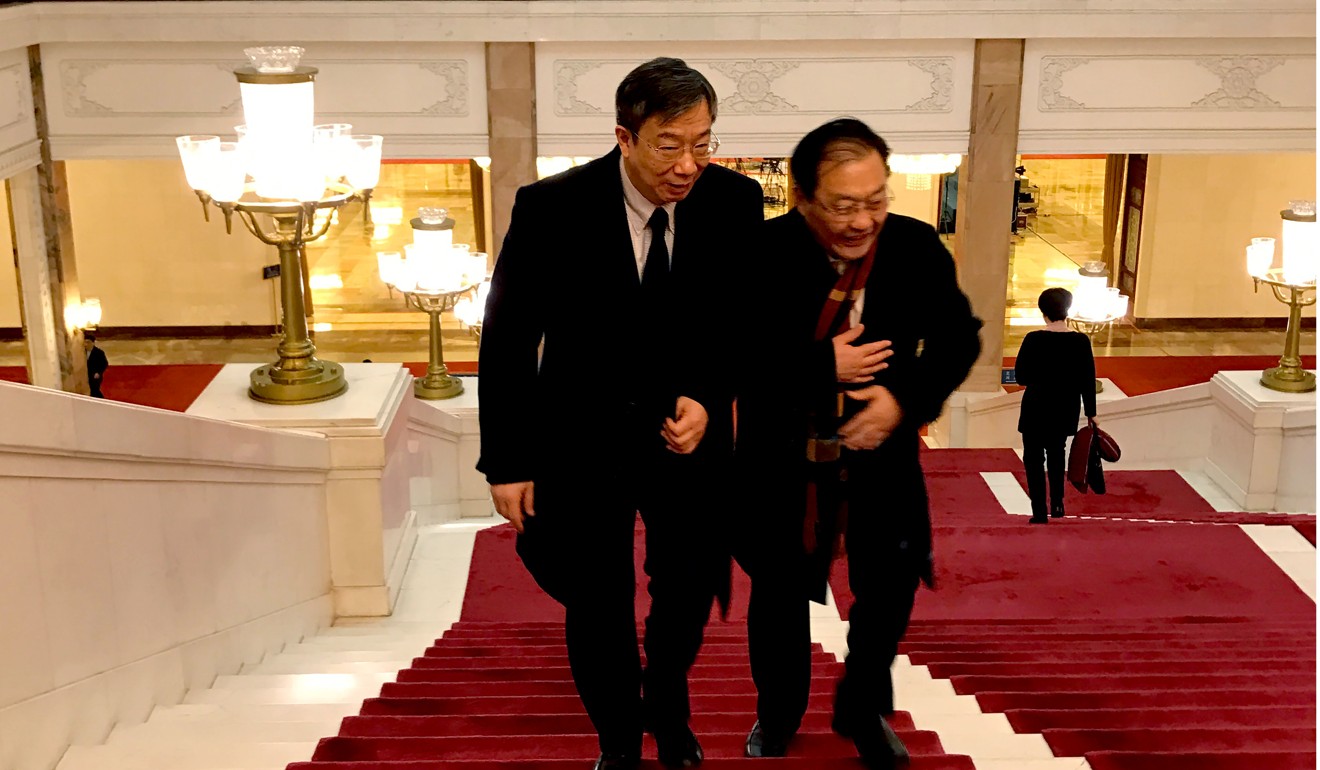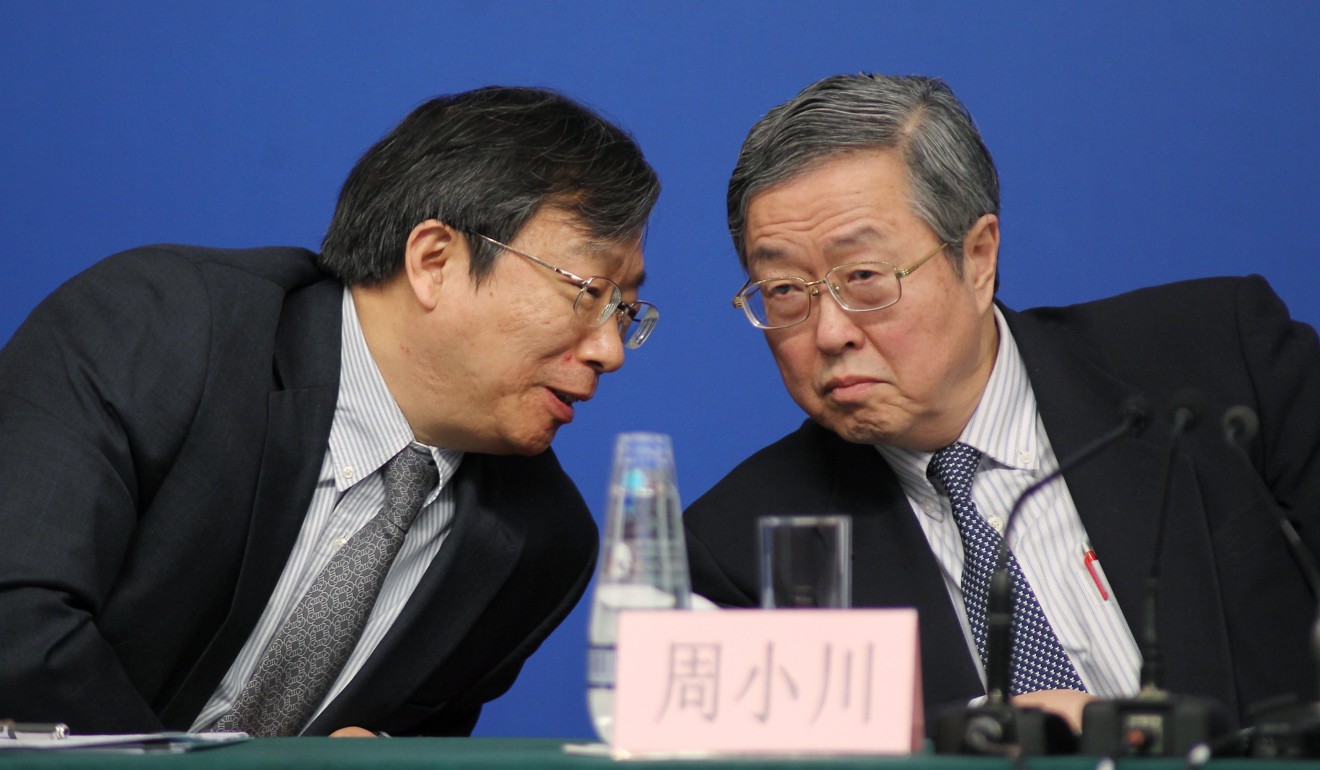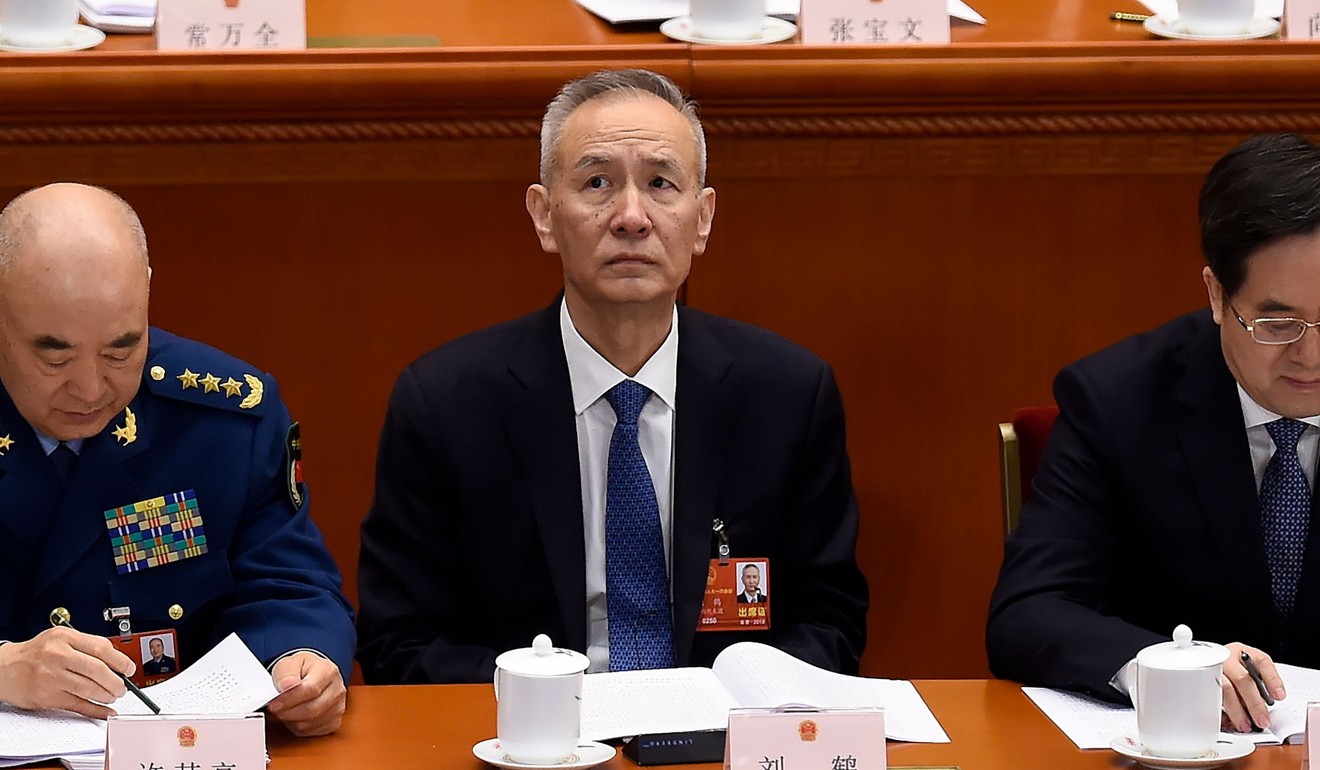
Update | Why Yi Gang was the obvious choice to become governor of the People’s Bank of China
With his overseas education and work experience, Yi has all the credentials to push Beijing’s economic agenda on the world stage
Despite rumours that some serious heavyweights were in the running for the top job at the People’s Bank of China – including newly elected Vice-Premier Liu He – with the benefit of hindsight, the appointment of Yi Gang was never really in doubt.
Not only had he served a 10-year apprenticeship as deputy governor under Zhou Xiaochuan – whose retirement after 15 years was confirmed on Monday – but he had also spent a decade studying and working in financial fields overseas.
As Beijing seeks to raise its profile on the global stage, while also maintaining policy stability and tackling financial risk at home, what better candidate was there?
Deng Haiqing, an economist with Chinese brokerage house JZ Securities said in a note that the appointment of 60-year-old Li sent a strong message that China not only supported globalisation but also “aspired to have a big voice in global economic governance”.

As central bank governor in the world’s second-largest economy, Yi will also have responsibility for reshaping China’s financial landscape as Beijing’s moves away from growth at any price to a more sustainable economic model.
“I feel peaceful and solemn now as the mission is holy and glorious,” Yi told journalists after his appointment was announced.
Yi said he would maintain a “prudent” monetary policy, promote financial reform and opening up, and maintain financial stability.
He said also that Beijing would announce a slew of new policies in the weeks ahead of the Boao Forum for Asia. The event, which starts early next month, is sometimes dubbed Asia’s Davos and this year will be attended by Chinese President Xi Jinping.
Yi’s political career started as deputy secretary general of a government monetary policy committee in 1997, only three years after he returned from the US to Peking University to co-found the China Centre for Economic Research, now known as the National School of Development. He was then promoted to head of the monetary policy department and foreign exchange regulator.

Yi contributed a great deal to smoothing out the country’s monetary policy mechanism and transforming the central bank from a planning agency into a modern central banking regime on a par with the US Federal Reserve, the European Central Bank and the Bank of England, according to Shen Jianguang, chief economist at Mizuho Securities Asia.
“The central bank has also achieved big progress in forward looking policy and expectation management with his help,” he said.
Sun Lijian, a professor at Fudan University in Shanghai, said the appointment sent a strong signal that Beijing wanted to see China taking a bigger role in global finance.
“It breaks a tacit rule in China that a person with overseas experiences shouldn’t be appointed as the number one official in a key government division,” he said. “Yi will be a good successor to Zhou in many aspects, including making the yuan a truly international currency.”
Yi is fluent in English and received a doctorate in economics from the University of Illinois and taught the same subject at Indiana University. Given his familiarity with international financial and monetary policymakers, he was frequently present at international conventions to communicate China’s financial policies.

When the impact of the stock market rout and the sudden depreciation of the yuan rippled through overseas markets in 2015, Yi as deputy central bank governor and head of the State Administration of Foreign Exchange, took the tough job of easing foreign concerns.
“Don’t worry, China still has pretty much middle to high growth in the near future,” he told hundreds of delegates at an International Monetary Fund-World Bank seminar in Peru that year.
Gary Liu, president of China Financial Reform Institute, a Shanghai-based research group, said that while Yi undoubtedly had a deep financial knowledge, his frontline management abilities had yet to be tested.
“He needs more action … to prove [his capability],” he said.
Yi will work closely with Liu He – the vice-premier in charge of financial and economic affairs, and Xi’s most trusted economic adviser – with whom he had worked on the central leading group for financial and economic affairs since 2014.
After the Financial Stability and Development Commission was set up in July to oversee regulatory efforts, Beijing last week merged the country’s banking and insurance regulators to further improve market supervision.
As a result, the central bank was given more power to set monetary policy and market rules, although Yi will not have things all his own way, according to one analyst.
Larry Hu, chief China economist at Macquarie Securities, said the People’s Bank of China lacked the freedom enjoyed by many of its counterparts around the world and that Yi would face many challenges.
“It [the PBOC] acts more like an adviser and operator, but not a maker, of monetary policy,” he said, adding that running it was “not an easy job”.
Additional reporting by Wendy Wu


